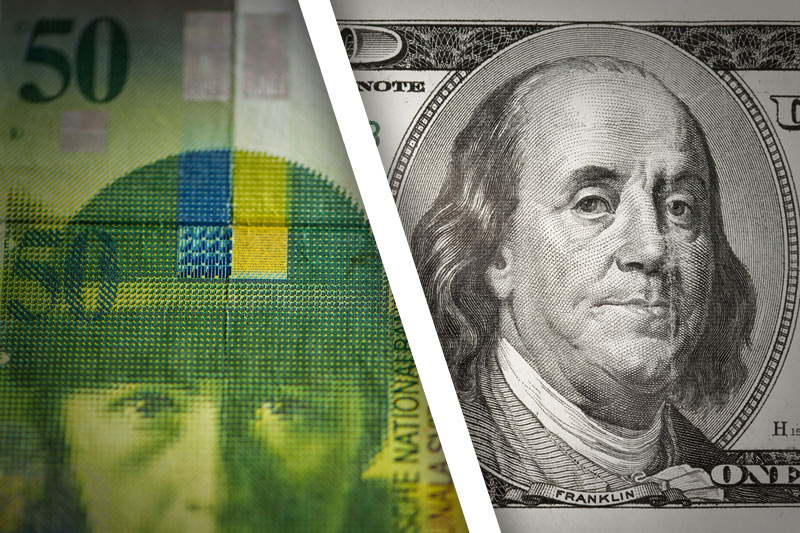Investing.com - The dollar ended the week close to two-and-a-half year lows against the traditional safe haven Swiss franc as a combination of fears over the crisis in Ukraine and a slowdown in China’s economy sapped risk appetite.
USD/CHF ended Friday’s session down 0.26% to 0.8721, not far from Thursday’s low of 0.8698, the weakest level since October 2011. For the week, the pair lost 0.64%.
The pair is likely to find support at 0.8590 and resistance at 0.8790.
Investor sentiment was hit as weak economic reports from China raised fresh concerns over the strength of the world’s second-largest economy. On Thursday, Chinese Premier Li Keqiang warned that the economy faced "severe challenges" in 2014.
Fears over problems in China’s financial sector also weighed on investor sentiment, following the country’s first domestic bond default this month.
Meanwhile, tensions between Russia and the West remained high ahead of Sunday's referendum in Ukraine’s Crimea region, now controlled by pro-Russian forces, on whether citizens want to join Russia.
The referendum has been condemned as "illegal" by Kiev and the West and is expected to prompt the west to impose sanctions on Russia.
In the U.S., data on Friday showed that consumer sentiment declined unexpectedly in March.
The University of Michigan consumer sentiment index ticked down to 79.9, from the 81.6 final reading in February. Analysts had expected the index to improve to 82.0.
The euro also ended the week lower against the Swiss franc, with EUR/CHF settling at 1.2133, down 0.36%.
The single currency came under pressure after European Central Bank President Mario Draghi said Thursday the strong euro was dragging down inflation.
Draghi said the strength of the euro was becoming increasingly relevant to the bank’s assessment of price stability, indicating growing concerns that the appreciation of the euro could undermine the fragile recovery in the euro area.
In the week ahead, investors will be looking ahead to Wednesday’s monetary policy announcement by the Federal Reserve. The bank is also to publish its economic forecasts. The Swiss National Bank is to announce its Libor rate.
Ahead of the coming week, Investing.com has compiled a list of these and other significant events likely to affect the markets. The guide skips Friday as there are no relevant events on this day.
Monday, March 17
The U.S. is to publish data on manufacturing activity in the Empire State, as well as reports on industrial production and long term securities transactions.
Tuesday, March 18
The U.S. is to produce data on consumer inflation, in addition to reports on building permits and housing starts.
Wednesday, March 19
The ZEW Institute is to publish a report on economic expectations in Switzerland, a leading indicator of economic health.
The Federal Reserve is to announce its federal funds rate and publish economic forecasts for inflation and growth. The Fed statement is to be followed by a press conference with Chair Janet Yellen.
Thursday, March 20
The SNB is to announce its libor rate. The bank is also to publish its quarterly monetary policy assessment.
The U.S. is to publish the weekly report on initial jobless claims, as well as data on existing home sales and manufacturing activity in the Philadelphia region.
